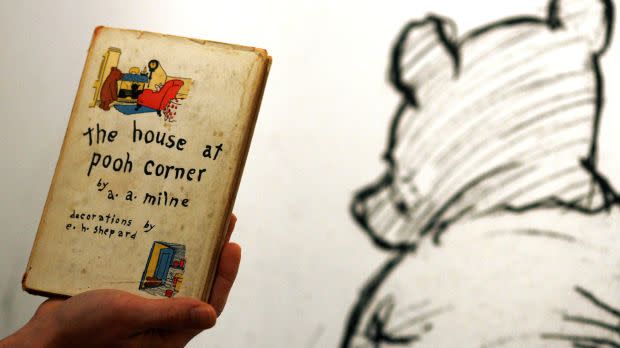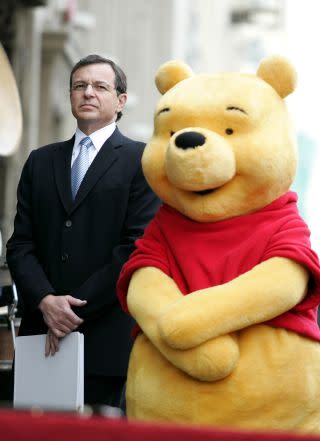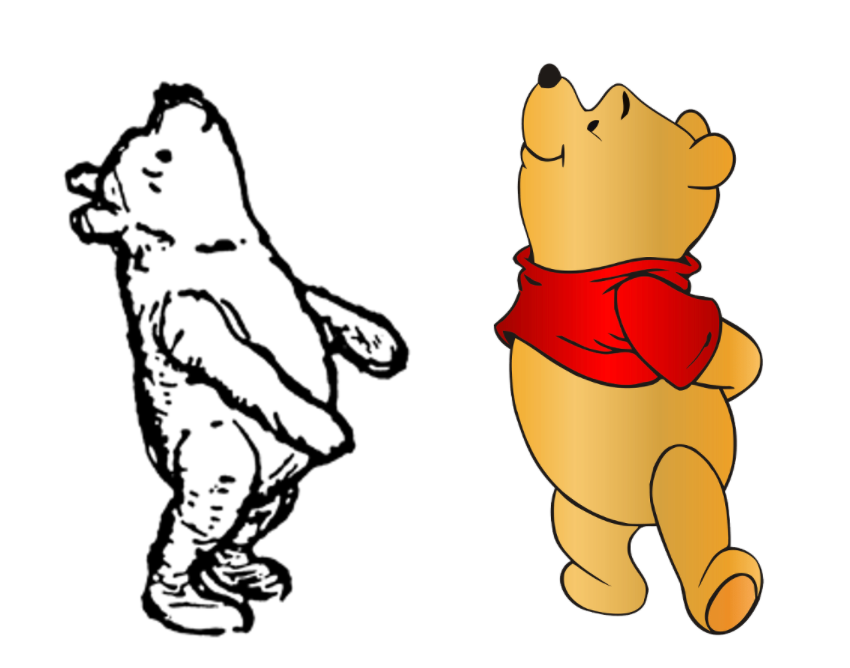Winnie-the-Pooh, Bambi, and 400,000 sound recordings enter the public domain in 2022

A deluge of creative works will enter the public domain on Jan. 1. According to US copyright law, anyone will be able to republish or adapt any work published on or before 1926 without needing to pay the author’s estate or even seek their permission.
Jennifer Jenkins, director of Duke University’s Center for the Study of the Public Domain, describes 2022 as “a blockbuster of a year” for public domain enthusiasts. The intellectual law professor has been tracking artistic works entering the public realm and publishes an analysis every December. “It’s like unwrapping hundreds of extra presents during the holidays,” Jenkins writes in an email to Quartz. “Not only do I get to explore all of these incredible works from the past, I get to imagine what creativity they might inspire in the future.”
This year’s bounty includes seminal books like A. A. Milne’s Winnie-the-Pooh, Felix Salten’s Bambi, A Life in the Woods, and debut novels by Ernest Hemingway and William Faulkner. Dorothy Parker and Langston Hughes’s first compendium of poems also enter in the public domain this year.
In addition, 400,000 sound recordings made on or before 1923 are also made available to new creators. In the US, a musical composition is treated separately from a recording of a performance. The US granted its first copyrights for sound recordings in 1972, while lyrics and scores have been protected since 1831. A 2018 bill called the “Music Modernization Act” specified a schedule for older recordings to gradually enter the public domain, with the first batch being released in 2022.
Will Disney try to extend Winnie-the-Pooh’s copyright?
Jenkins is closely watching if the Walt Disney Corporation, which owns the billion-dollar Winnie the Pooh franchise, will attempt to block independent creators from adapting the fictional bear in new works. With the exception of the character Tigger, who first appears in Milne’s 1928 book The House at Pooh Corner, the plot, dialogue, and characters from the 1926 story as well as E.H. Shepard’s accompanying line drawings are free to use. This could mean updated tales about Pooh, Christopher Robin, Piglet, and Eeyore, or even inventive NFT propositions featuring the original book illustrations.

Winnie-the-Pooh with Bob Iger, executive chairman and former CEO of the Walt Disney Corporation.
Disney has a lot to gain in protecting the Winnie-the-Pooh brand, Jenkins points out. “As of 2021, the Pooh-niverse has brought in $80.3 billion, behind only Pokemon and Hello Kitty in total earnings, and tied with Mickey Mouse,” she explains. Jenkins notes that Disney still retains rights to Milne’s books published after 1926, as well as the trademark to the words “Winnie-the-Pooh” in branded books and products. They also own exclusive rights to color renditions of Winnie-the-Pooh characters featured in films, books, and merchandise after 1926.
Disney has a reputation for pushing back public domain deadlines. With their claims to Steamboat Willie, the first film starring Mickey Mouse, looming, they successfully lobbied US Congress to extend copyright protection on two occasions. The Copyright Term Extension Act of 1998 which protects a corporation’s copyright over the span of 95 years from the original publication date, is also known as “The Mickey Mouse Protection Act”.
“Will Disney try to thwart these legal reuses in the same way the rights holders to Sherlock Holmes, Tarzan, and Zorro did when those properties entered the public domain or will they stick to [enforcing] the rights they actually own?” Jenkins says. “Many see this as a test drive for what they will do when Steamboat Willie enters the public domain in two years.”
When the copyright expires this weekend, Disney can’t sue anyone who uses the original book in a new project. They can however go after derivative works that clearly stem from iterations of Winnie the Pooh franchise after 1926.

“You can use the left version of Winnie-the-Pooh along with all of his adorable personality traits from that book but you should probably steer clear of using the right version because there is probably enough ‘original, creative expression,’ added that would qualify for copyright,” says Jenkins.
Courts have rejected previous attempts to reinstate an expired copyright. For instance, Arthur Conan Doyle estate’s failed on two occasions to assert their claim for characters in his Sherlock Holmes novels after it entered public domain in 2016. Similarly, in a 2018 ruling on a copyright case between two rival music producers. a California court affirmed that Zorro, the fictional masked vigilante who first appeared in a 1919 serial titled The Curse of Capistrano, is a copyright-free entity.
Disney’s legal team already has its hands full policing countless unauthorized Winnie-the-Pooh merch in the free market. In 2009, the company won a 20-year legal battle against the heirs of Stephen Slesinger, the comic strip impresario who bought the rights to Winnie-the-Pooh from Milne and later sold it to Disney. After his death, Slesinger’s family accused Disney of not fully disclosing how lucrative the Pooh franchise had become, and in effect, the company owed them $2 billion.
In researching the case for Public Domain Day, Jenkins also discovered that Disney’s federal registrations for the drawings of the original Winnie-the-Pooh characters, which were registered as logos, have lapsed. “None of us can figure out whether this was deliberate or someone was asleep at the wheel, but it sure is interesting,” she says.
Quartz contacted Disney to inquire about the expired trademarks and whether they’ll contest any Winnie-the-Pooh adaptations but didn’t hear back by the time this article was published.
A sampling of works entering the public domain in 2022
Jenkins is also keenly interested about the thousands of recordings entering public domain. “The sound recordings are especially exciting—it is both a celebration of the African-American artists who pioneered American music and a somber reflection on what they were up against,” Jenkins says. “Mamie Smith, Ethel Waters, Bert Williams, Kid Ory…hearing their contributions more than a century later is incredible.”
Here’s a partial list of the sound recordings and works film and print entering the public domain this weekend.
Sound recordings
Mamie Smith and Her Jazz Hounds, Crazy Blues, Don’t Care Blues, That Thing Called Love, You Can’t Keep a Good Man Down
Ethel Waters, Down Home Blues, There’ll Be Some Changes Made
Sophie Tucker, Some of These Days. Pick Me Up and Lay Me Down
Performances by Italian tenor Enrico Caruso’s performances in Rigoletto, La Traviata, La Bohème and Pagliacci
Sergei Rachmaninoff’s rendition of Liebesleid
Fanny Brice, My Man, Second Hand Rose
Al Jolson, Swanee
Books
Bambi, A Life in the Woods, Felix Salten
The Sun Also Rises, Ernest Hemingway
Enough Rope, Dorothy Parker,
The Weary Blues, Langston Hughes,
The Seven Pillars of Wisdom, T. E. Lawrence
The Plumed Serpent, D. H. Lawrence
Sand and Foam, Kahlil Gibran
Films
For Heaven’s Sake, Sam Taylor
Battling Butler, Buster Keaton
The Son of the Sheik, George Fitzmaurice
The Temptress, Fred Niblo
Faust, F. W. Murnau
So This Is Paris, Ernst Lubitsch
Don Juan, Alan Crosland
An extensive list can be found on Duke University Law School’s Center for the Study of the Public Domain’s website.
Sign up for the Quartz Daily Brief, our free daily newsletter with the world’s most important and interesting news.
More stories from Quartz:
